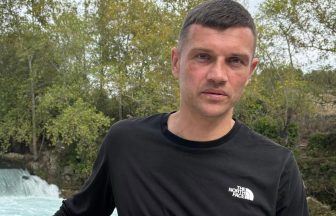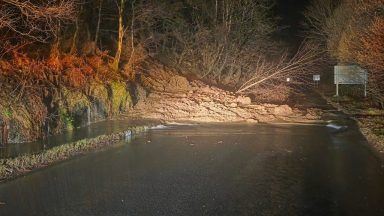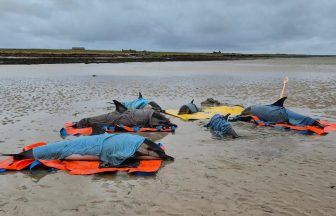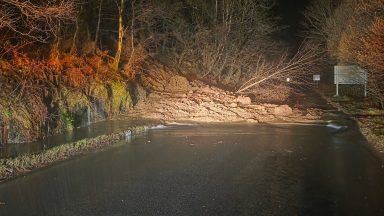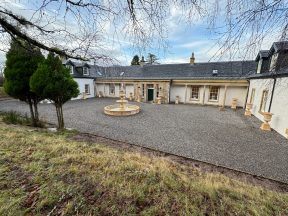Thousands of acres of new native woodland are to be created on a vast Highlands estate under a scheme to boost nature and support the community.
The Assynt Foundation has partnered with Woodland Trust Scotland to deliver nature regeneration across its Glencanisp and Drumrunie estates in the north-west Highlands of Scotland, protecting, restoring and expanding woodlands including rare Atlantic rainforest, along with other habitats.
The foundation, a registered charity which bought the estates in a £2.9m community buyout in 2005, hopes to improve the condition of the landscape for nature and generate funding to benefit the local community.
The 30-year South Assynt collaboration project aims to create 2,000 to 2,500 acres of new native woodland in the first five to ten years of the scheme, among a wider mosaic of trees, open moorland and mountains.
Other habitats such as peatlands and river areas will also be improved over the 30 years, and 500 to 1,000 acres of existing ancient woodlands, including remnants of Scotland’s once widespread temperate rainforest, will be restored and expanded.
Woodland creation will focus on natural regeneration where possible, with potential for deer fencing to prevent grazing of young saplings, or naturalistic planting.
The programme is being funded by insurance giant Aviva, as part of a £10m donation to the Woodland Trust for nature restoration work across the UK.
Woodland Trust Scotland will register carbon credits from the woodland creation to generate income which it will share with the foundation, which is expected to receive £2m to £2.5m subject to tree growth.
Assynt Foundation trustee Dorothy Griffin said: “The collaboration with the Woodland Trust will help us make the land more resilient, store more carbon, support biodiversity and strengthen the connection between people and land for generations to come.”
Simon Jeffreys, Assynt Foundation trustee, company secretary and treasurer, said the scheme had two aims for the community organisation: “Firstly, to improve the condition of the estates in terms of nature, and secondly that we have a ‘war chest’, which we’ve never had before, and we can use that for improvements for social benefits to local members and residents.”
He said the remote estates cover a vast 44,000 acres, or 18,000 hectares, of “bog, mountain, moorland and water”, including mountains such as Suilven, Canisp, Cul Mor and Cul Beag.
But he said: “We had a great deal of land, but no money to do anything to it and a complete lack of expertise in terms of nature conservation and improvement.”
So the foundation has teamed up with Woodland Trust Scotland, which it had already collaborated with for some native woodland planting, for the new venture, to deliver a boost to nature and generate income for the community of around 2,000 residents living around the uninhabited estates.
As a first step, surveying of the estates will assess what habitats are there, what state they are in and what can be done to improve them, and then the Woodland Trust and the Assynt Foundation will work together to agree plans for the landscape.
The result aims to be a resilient landscape that boosts wildlife and reconnects people to the land, the project’s backers said.
Woodland Trust Scotland director Alastair Seaman said: “We’re excited to be pioneering a new approach that combines community landownership, a company that’s taking its de-carbonising responsibilities seriously and the expertise of the Woodland Trust.
“Our vision is a landscape restored and a community empowered.
“This is a new approach – so we’ll be learning as we go and sharing what we learn with others who may want to explore similar approaches.”
Aviva’s chief sustainability officer Claudine Blamey said: “Aviva and the Woodland Trust are working together to mitigate climate change and protect and restore nature.
“The state of our climate and of nature are crucial to the long-term sustainability of our economies and societies.
“We are delighted to be able to support the South Assynt Collaboration Project to restore the landscape in the north-west Highlands of Scotland, and thereby helping the UK become more climate-ready.”
Follow STV News on WhatsApp
Scan the QR code on your mobile device for all the latest news from around the country


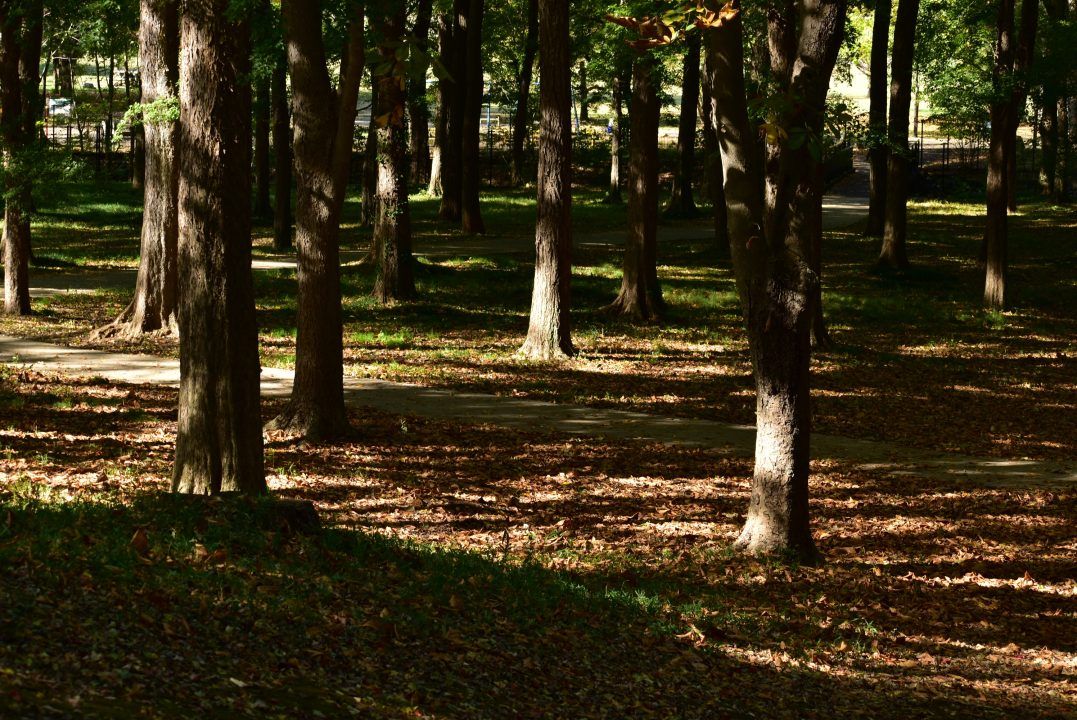 Adobe Stock
Adobe Stock







